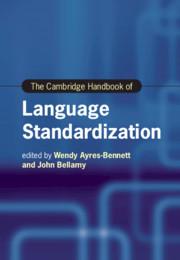Minglang Zhou

School of Languages, Literatures, and Cultures
Professor, Chinese
Member, Maryland Language Science Center
mlzhou@umd.edu
2106D Jiménez Hall
Get Directions
Minglang Zhou earned his Ph. D. in linguistics from Michigan State University in 1993. His teaching and research interest include the sociology of language, language and ethnicity, bilingual education, and Chinese as a second language. He authored “Multilingualism in China: The politics of writing reform for minority languages 1949–2002” (Mouton de Gruyter, 2003) and "Language Ideology and Order in Rising China" (Palgrave Macmillan, 2019), and edited or co-edited six volumes on language policy, bilingual education, and language contact in China. He also published two dozens of research articles and book chapters on these topics. He reviews manuscripts on these topics for more than ten international scholarly journals and serves on the editorial/advisory committees for several of these journals. He won a 2009 American Philosophical Society fellowship for his book project “Models of nation-state building and language education for ethnic minorities in China, 1949-2009.”
Publications
Multilingualism in China from Melting Pot to Pressure Cooker
This article examines how minorities are pressured to become Chinese under Xi Jinping.
Author/Lead: Minglang ZhouHeadlines on re-education camps in Xinjiang and a forced switch to Mandarin as the language of instruction in Inner Mongolian primary schools have brought concern in the international community about the wellbeing of China’s ethnic minorities. To address this concern, the current article examines China's minority police changes under Xi Jinping in the last few years.
Read More about Multilingualism in China from Melting Pot to Pressure Cooker
Standardization of Minority Languages: Nation-State Building and Globalization
Do minority languages have any chance to be standardized though majority languages often are?
Author/Lead: Minglang Zhou
Language standardization is the core of language policy and language planning (LPLP), which are two different sides of the same coin. Focusing on speakers, language policy decides which language – or variety of a lan- guage – students should learn, teachers should use in schools, officials should adopt in government, employers and employees should converse in when conducting business and people should speak in public. On the other hand, by targeting languages, language planning engages the processes of selecting a standard variety or a standard language (status planning) and normalizing the selected language’s or variety’s grammar, vocabulary, pro- nunciation and scripts (corpus planning) so that it may best fulfil its desig- nated functions. Thus, language standardization may be broadly viewed from the perspective of language policy, of language planning or of both. This chapter takes this broad perspective of the standardization of minor- ity languages – languages that are either not spoken by the majority of citi- zens or not designated as the national or official languages of a nation-state.
Read More about Standardization of Minority Languages: Nation-State Building and Globalization

